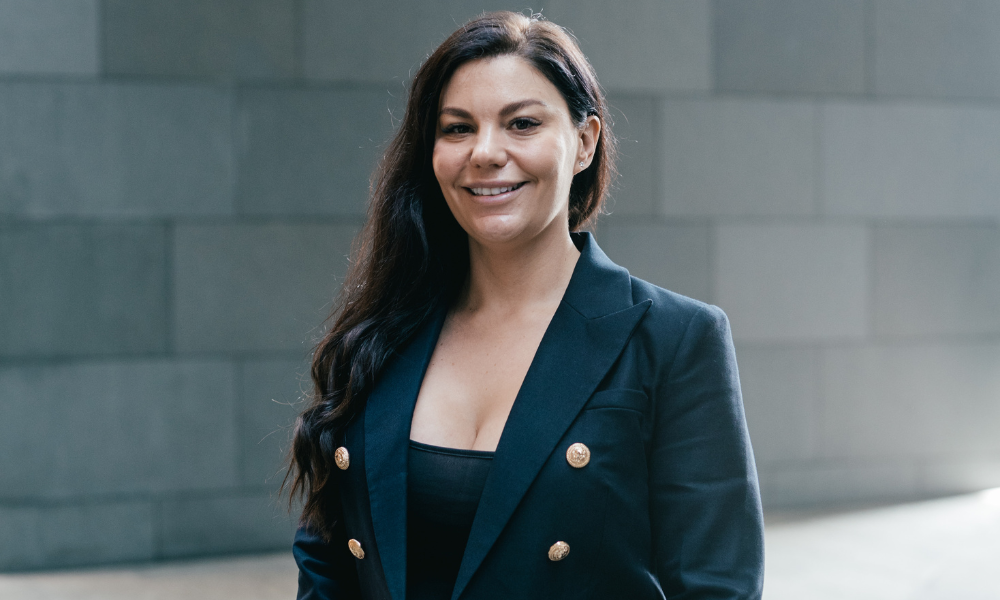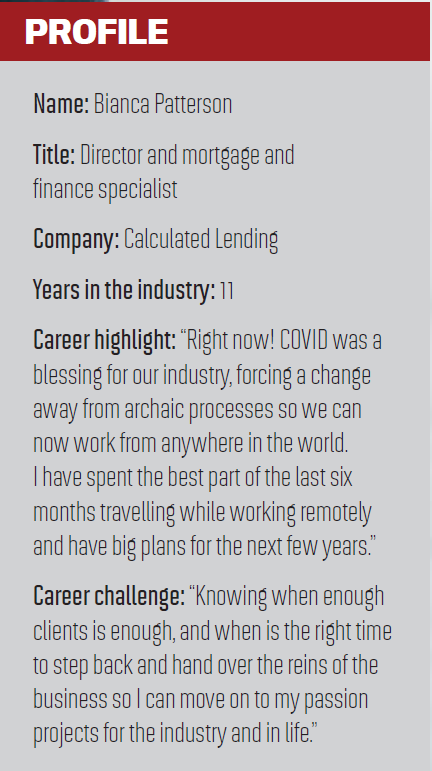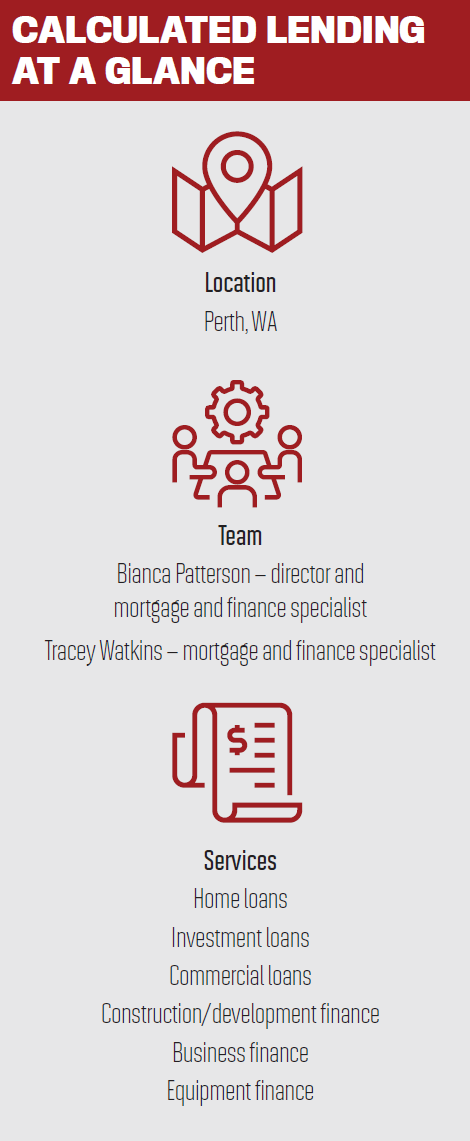Successful Perth broker Bianca Patterson is passionate about supporting women to enter the industry and thrive

Bianca Patterson doesn’t gloss over the difficulties she faced when switching from the property business to mortgage broking 11 years ago.
“I was attracted to the flexibility and fast-paced nature of the finance industry,” says Patterson. “I am a problem solver, so becoming a broker was a natural career progression.”
“The early days were challenging. I was a 26-year-old female with no banking or broking experience, so every new client was a significant learning experience.
“As a new broker you don’t know what you don’t know, and there is only so much theory can teach you. You learn as new scenarios come up and as lenders change their policies.”
Sadly, Patterson’s early days as a mortgage broker weren’t what she expected.
“Unfortunately, in most instances the industry wasn’t welcoming,” she says. “I was overlooked, and if I was invited to attend events I was asked things like whose assistant I was, or who couldn’t attend – as if I had stepped in in someone’s place. Many of my early experiences were discouraging, and I see why we lose 50% of new entrants to the industry within the first 12 months.”
However, Patterson says she met other industry peers “who were, and still are, incredibly supportive of me and my career aspirations”.
“They helped me see that I should lead and be the change I wanted to see in the industry.”
 Running a broker business
Running a broker business
Patterson says setting up her brokerage, Calculated Lending, was one of the most rewarding yet challenging achievements of her career.
“It was hard work, and initially I failed at more things than I succeeded with, but over time I learnt more about myself and the sort of business owner I wanted to be, and that’s when everything just seemed to fall into place.
“I know now that while it’s important to know how to run every function of the business, it’s impossible, and inefficient, to do it all.”
Patterson says she loves compliance and administration and finds client and people management the biggest challenge in the business.
“It’s an ongoing challenge to get the right balance, delegating roles that are not the best use of my time or that I simply don’t enjoy.”
Pushing for female participation Patterson is a member of the MFAA Opportunities for Women and community advisory panels and plays an active role in championing female brokers.
“Broking is one of few occupations where woman have complete pay parity,” she says. “We have the opportunity to earn as much as the effort we put in, so our income-earning potential is uncapped, and not biased by gender.”
Despite this, says Patterson, the industry is still struggling to recruit and retain women, with the proportion of female brokers now at an all-time low of 25.6%.
“Our industry has so much to offer, and I believe it is all of our responsibilities to look at the way we have done things in the past and learn from them.
“I hope that by sharing my experiences and by being actively involved in the MFAA initiatives and in these conversations, I can help shape our industry and the perception others have of it.”
Patterson says the Opportunities for Women panel is made up of a group of brokers and industry partners who review and analyse data from the annual MFAA Diversity and Inclusion survey, to unpack the issues in the industry and different age groups’ and genders’ perceptions of those issues.
“We consider the answers to the set questions, and the comments, and try to find common themes in that year, and this has been happening year-on-year since we started the initiative.”
The common feedback has been that women want to feel included, says Patterson. They also want to hear from more female role models; to have events organised that consider them (not just drinking and golf days); and to have speakers focus more on issues that affect them.
This feedback led to the MFAA launching its Champions of Diversity series, which interviews successful industry members who advocate for or demonstrate diversity.
“It’ been extremely well received across the industry and has allowed the often-untold story of a culturally diverse broker, a single parent or a working dad who built a business to give them more time with their family, to be heard and celebrated,” Patterson says.
This year the MFAA has also launched its Women in Finance Broking networking events, with great attendance by brokers and industry partners across the country.
“These events highlighted that the conversation is relevant, and that the perception gap is changing; however, we need to keep up the momentum to make sure that we make lasting change.”
Positive change
Patterson says there has been significant change in the industry, especially over the last few years.
“Diversity and inclusion is an active conversation now. The business case for women in our industry is clear, and I see this paving the way for more flexible and transparent working conditions for all.
 “The industry is starting to celebrate some of our incredible talent for more than just the volume of business they write, and it’s great to hear their stories and to acknowledge that success is so different for all of us. This shift gives me confidence that we are on the right track, but we still have a fair way to go.”
“The industry is starting to celebrate some of our incredible talent for more than just the volume of business they write, and it’s great to hear their stories and to acknowledge that success is so different for all of us. This shift gives me confidence that we are on the right track, but we still have a fair way to go.”
Patterson says progress in female broker numbers was being made “until COVID threw a spanner in the works”.
“Statistically, across the world women took on the bulk of the extra childcare and homeschooling during lockdowns, and we are going through ‘The Great Resignation’ with record numbers of people leaving their roles to start brand-new careers,” she says.
“We have a real opportunity now to attract women into our industry, and with the right support and encouragement we will ideally be their final career choice.”



